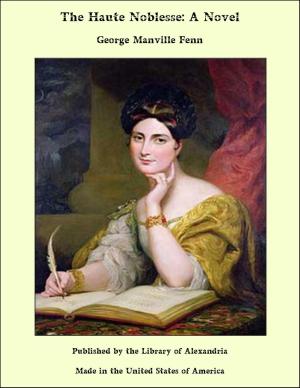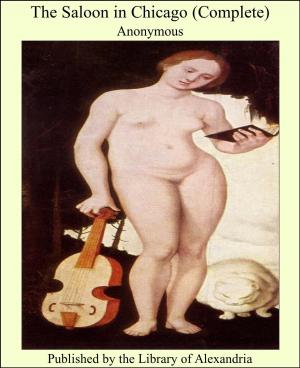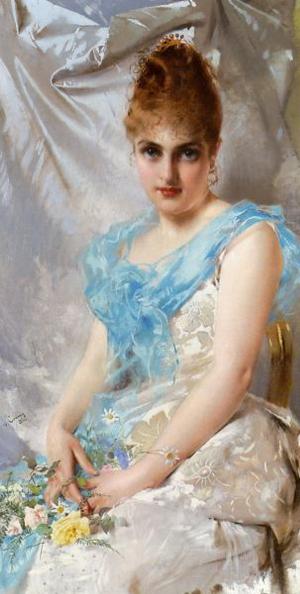Beryl of the Biplane: Being the Romance of an Air-Woman of To-Day
Nonfiction, Religion & Spirituality, New Age, History, Fiction & Literature| Author: | William Le Queux | ISBN: | 9781465625151 |
| Publisher: | Library of Alexandria | Publication: | March 8, 2015 |
| Imprint: | Language: | English |
| Author: | William Le Queux |
| ISBN: | 9781465625151 |
| Publisher: | Library of Alexandria |
| Publication: | March 8, 2015 |
| Imprint: | |
| Language: | English |
“Are you flying ‘The Hornet’ to-night?” “I expect so.” “You were up last night, weren’t you? Mac told me so at Brooklands this morning.” “Yes—Zepp-hunting. I was up three hours, but, alas! had no luck. Two came in over Essex but were scared by the anti-aircraft boys, and turned tail. Better luck to-night, I hope,” and Ronald Pryor, the tall, dark, good-looking young man in grey flannels, laughed merrily as, with a quick movement, he flicked the ash from his after-luncheon cigarette. His companion, George Bellingham, who was in the uniform of the Royal Flying Corps, wearing the silver wings of the pilot, was perhaps three years his senior, fair-haired, grey-eyed, with a small sandy moustache trimmed to the most correct cut. Passers-by in Pall Mall on that June afternoon no doubt wondered why Ronald Pryor was not in khaki. As a matter of fact, the handsome, athletic young fellow had already done his bit—and done it with very great honour and distinction. Before the war he had been of little good to society, it is true. He had been one of those modern dandies whose accomplishments include an elegant taste in socks—with ties to match—and a critical eye for an ill-cut pair of trousers. Eldest son of a wealthy bank-director, Ronnie Pryor had been born with the proverbial silver spoon in his mouth. After his career at Oxford, his father, Henry Pryor, who lived mostly at his beautiful old place, Urchfont Hall, a few miles out of Norwich, had given him an ample allowance. He had lived in a bachelor flat in Duke Street, St. James’s, and spent several gay years about town with kindred souls of both sexes, becoming a familiar object each night at the supper-tables of the Savoy, the Carlton, or the Ritz. This wild oat sowing had, however, been brought to an abrupt conclusion in a rather curious manner. One Saturday afternoon he had driven in a friend’s car over to the Aerodrome at Hendon, and had there witnessed some graceful flying. He had instantly become “bitten” by the sport, and from that moment had devoted himself assiduously to it. Four months later he had taken his “ticket” as a pilot, and then, assisted by capital from his indulgent father, had entered business by establishing the well-known Pryor Aeroplane Factory at Weybridge, with a branch at Hendon, a business in which his companion, Flight-Lieutenant George Bellingham, of the Royal Flying Corps, had been, and was still, financially interested. That Ronnie Pryor—as everyone called him—was a handsome fellow could not be denied. His was a strongly marked personality, clean-limbed, with close-cut dark hair, a refined aquiline face, and that slight contraction of the eyebrows that every air-pilot so quickly develops. On the outbreak of war he had been out with General French, had been through the retreat from Mons, and while scouting in the air during the first battle of Ypres, had been attacked by a German Taube. A fierce and intensely exciting fight in the air ensued, as a result of which he brought his enemy down within our own lines, but unfortunately received a severe wound in the stomach himself, and, planing down, reached earth safely a long distance away and collapsed unconscious.
“Are you flying ‘The Hornet’ to-night?” “I expect so.” “You were up last night, weren’t you? Mac told me so at Brooklands this morning.” “Yes—Zepp-hunting. I was up three hours, but, alas! had no luck. Two came in over Essex but were scared by the anti-aircraft boys, and turned tail. Better luck to-night, I hope,” and Ronald Pryor, the tall, dark, good-looking young man in grey flannels, laughed merrily as, with a quick movement, he flicked the ash from his after-luncheon cigarette. His companion, George Bellingham, who was in the uniform of the Royal Flying Corps, wearing the silver wings of the pilot, was perhaps three years his senior, fair-haired, grey-eyed, with a small sandy moustache trimmed to the most correct cut. Passers-by in Pall Mall on that June afternoon no doubt wondered why Ronald Pryor was not in khaki. As a matter of fact, the handsome, athletic young fellow had already done his bit—and done it with very great honour and distinction. Before the war he had been of little good to society, it is true. He had been one of those modern dandies whose accomplishments include an elegant taste in socks—with ties to match—and a critical eye for an ill-cut pair of trousers. Eldest son of a wealthy bank-director, Ronnie Pryor had been born with the proverbial silver spoon in his mouth. After his career at Oxford, his father, Henry Pryor, who lived mostly at his beautiful old place, Urchfont Hall, a few miles out of Norwich, had given him an ample allowance. He had lived in a bachelor flat in Duke Street, St. James’s, and spent several gay years about town with kindred souls of both sexes, becoming a familiar object each night at the supper-tables of the Savoy, the Carlton, or the Ritz. This wild oat sowing had, however, been brought to an abrupt conclusion in a rather curious manner. One Saturday afternoon he had driven in a friend’s car over to the Aerodrome at Hendon, and had there witnessed some graceful flying. He had instantly become “bitten” by the sport, and from that moment had devoted himself assiduously to it. Four months later he had taken his “ticket” as a pilot, and then, assisted by capital from his indulgent father, had entered business by establishing the well-known Pryor Aeroplane Factory at Weybridge, with a branch at Hendon, a business in which his companion, Flight-Lieutenant George Bellingham, of the Royal Flying Corps, had been, and was still, financially interested. That Ronnie Pryor—as everyone called him—was a handsome fellow could not be denied. His was a strongly marked personality, clean-limbed, with close-cut dark hair, a refined aquiline face, and that slight contraction of the eyebrows that every air-pilot so quickly develops. On the outbreak of war he had been out with General French, had been through the retreat from Mons, and while scouting in the air during the first battle of Ypres, had been attacked by a German Taube. A fierce and intensely exciting fight in the air ensued, as a result of which he brought his enemy down within our own lines, but unfortunately received a severe wound in the stomach himself, and, planing down, reached earth safely a long distance away and collapsed unconscious.















